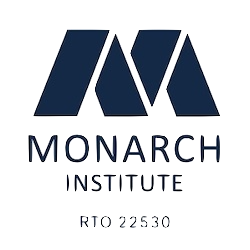Supply Chain Manager job description
Where we source our data
Let's get real. Job information online can often be overly optimistic — conveniently glossing over the raw bits. But when you're making decisions about your future, you need all the facts.
That's why we anonymously surveyed Supply Chain Managers about their job, with hopes of getting an honest insight into what it's really like.
While we did our best to ensure respondents were Australians and verified their job titles with proof of employment, we can't guarantee complete accuracy — or that your experiences in the field will reflect theirs. So, we suggest that you take these insights as a guide only and try to talk to people in the field before making an important decision.
Tasks and responsibilities for a Supply Chain Manager
Supply chain managers are responsible for planning, organising and directing every part of the supply chain process. Their duties often include:
- Overseeing procurement, storage, logistics, inventory, and delivery functions
- Working closely with suppliers, transport providers, distribution centres, warehouse teams, and business stakeholders
- Monitoring stock levels and managing budgets to ensure resources are allocated effectively
- Negotiating contracts and building relationships with suppliers and partners
- Developing and implementing supply chain strategies across departments
- Improving inventory systems and streamlining logistics operations
- Using data and digital tools to forecast demand, reduce waste, and improve delivery outcomes
- Identifying and leading digital transformation initiatives to enhance efficiency
- Managing distribution strategies to ensure goods arrive on time and in the right place
- Overseeing supply chain operations through inventory management software
- Monitoring supply chain efficiency and addressing performance issues
- Leading and supporting teams such as logistics coordinators and warehouse staff
How to become a Supply Chain Manager
-
Complete a relevant qualification
While it’s possible to work your way up, most supply chain managers start with a formal qualification. Consider completing a Certificate IV in Logistics, a Diploma of Logistics, or a Bachelor’s degree in Business, Supply Chain Management, or Logistics. These courses teach key concepts like transport planning, distribution strategies, and inventory management, providing a solid foundation for the role.
-
Gain experience in supply chain operations
Start your career in entry-level roles such as inventory officer, warehouse coordinator, or logistics support. These positions will give you hands-on experience with the supply chain process, stock levels, and supplier coordination. You’ll also build practical skills in inventory systems, performance monitoring, and supplier management.
-
Build leadership and strategic capabilities
As you move up, seek roles that let you take on more responsibility, like team leader, logistics coordinator or distribution manager. These positions will help you develop the leadership, planning and strategic thinking skills that supply chain managers use daily. You may also be involved in implementing supply chain strategies or overseeing digital transformation projects.
-
Step into a supply chain manager role
With a combination of education, operational knowledge and leadership experience, you’ll be ready to take on a supply chain manager position. In this role, you’ll oversee the entire supply chain process, manage key suppliers and contracts, reduce costs, and lead teams across planning, logistics and distribution. You’ll also help drive performance, efficiency, and continuous improvement across your organisation’s supply network.
Explore related qualifications
Diploma of Logistics
The Diploma of Logistics equips you with the skills to manage supply chains, coordinate transport, and oversee warehouse operations effectively. You’ll learn about inventory control, operational planning, and workplace safety, preparing you for leadership roles in logistics, freight, and distribution across a wide range of industries.






